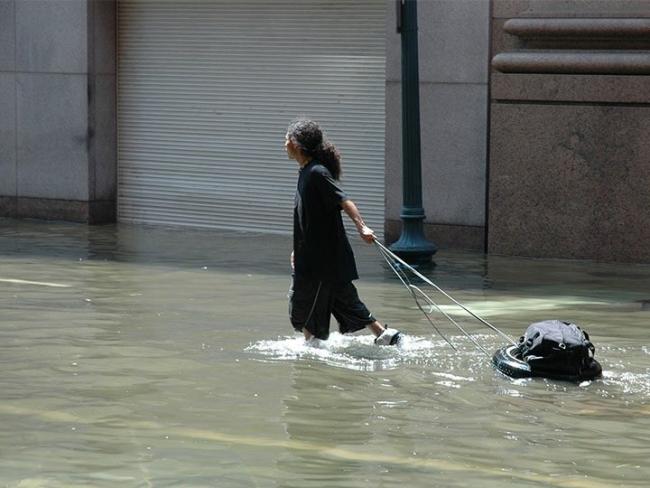
Project Summary: Addressing Health Disparities in Natural Disaster Response and Climate Change Impact
Lead Researcher: Robert D. Bullard, Ph.D., Distinguished Professor, Texas Southern University
A dedicated panel at the TAMEST Natural Hazards Summit shed light on the persistent problem of inequity in the distribution of aid following disasters. The discussion, led by Dr. Robert D. Bullard, emphasized the disproportionate impact of natural hazards on people of color. Dr. Bullard, a Distinguished Professor at Texas Southern University, co-authored "The Wrong Complexion for Protection: How the Government Response to Disaster Endangers African American Communities," highlighting the life-and-death consequences of disparate disaster response.
Goals:
The overarching goal of this research is to tackle health disparities in vulnerable communities, particularly those affected by natural disasters and climate change. Dr. Bullard's work aims to bring attention to systemic racism perpetuating disparities in disaster response and climate-related health outcomes. The project seeks to advocate for changes in resource allocation and policy to ensure that aid and resources are distributed based on need rather than reinforcing existing socioeconomic inequalities.
Methods:
Dr. Bullard's research draws attention to the systemic issues embedded in our institutions, exemplified by the disproportionate impact of natural disasters on minority populations. Through empirical evidence, including data on asthma attacks, cardiac arrests, and the disparate effects of COVID-19, the project highlights the compounding health challenges faced by African American communities. The research not only identifies these disparities but also explores potential solutions, notably examining the impact of President Joe Biden's Justice40 Initiative. This initiative aims to allocate 40% of federal funds for climate and clean energy to the most vulnerable populations, thereby addressing longstanding systemic issues.
Significance:
The significance of this research lies in its potential to instigate real change in how resources are distributed in the aftermath of natural disasters and in the face of climate change. By advocating for a shift in the allocation of federal funds, the project seeks to ensure that money follows the actual needs of the affected communities rather than perpetuating the existing disparities where "money follows money." The ultimate aim is to improve the health outcomes and resilience of vulnerable populations, breaking the cycle of systemic inequity.
Next Steps:
The project will continue its investigation, with the upcoming Part II of the TAMEST Natural Hazards Summit scheduled for May 16, 2022, in Lubbock, Texas. Dr. Bullard, in collaboration with the National Wind Institute at Texas Tech University, will further delve into these issues, exploring actionable steps to address health disparities and promote equitable responses to natural hazards and climate change impacts. The research aims to contribute not only to academic knowledge but also to influence policy changes for a more just and equitable distribution of resources.